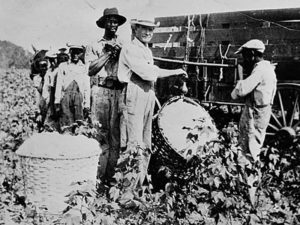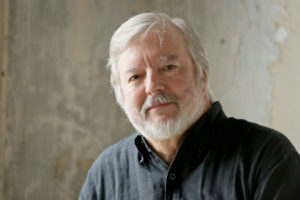The Sweet Everlasting
How and when to speak out against racial injustice is difficult to navigate, making many of us fearful of saying the wrong thing. But to stay silent is to tacitly approve of these outrages.

For three years, a small group of playwrights worked with TimeLine Literary Manager Ben Thiem in a series of meetings, workshops and readings to develop a new play from start to finish. We asked each playwright in the 2013-2016 inaugural Playwrights Collective to talk a little bit about their play and their process, to be featured on Behind the ‘Line. Today we pull up a chair with playwright Frances Limoncelli.
“It was an idea. As real as a sharp stick, and even better for drawing blood. But if you looked at it good, like I finally did, it didn’t have nothing to back it up.”
That idea is racism. An idea that wounds, sometimes fatally, even though it is based upon a completely false premise: that we are different from each other.
The Sweet Everlasting is the story of Ellis, a sharecropper’s son who grew up in Georgia in the 1930s. The 74-year-old Ellis is now looking back on his life, and those he loved, and how the racist atmosphere they lived in caused them irreparable damage. Ellis tells his story thoughtfully and with unvarnished honesty. In the telling, he tries to work out for himself what happened and why. What is it that has led him to a life alone, with no one and nothing? We wonder along with him. He examines his memories closely, painfully, to understand what role this idea has played in the events of his life.

Wouldn’t it be wonderful if that idea felt foreign to us today? Sadly, that’s not the case. Ellis’ story could be any of our stories. Certainly today we feel similar pain as we witness the many acts of racially motivated violence happening all around our country. Those of us who are white feel the guilt that comes from inheriting an unjust privilege, as Ellis does. And we struggle with what to do about it, as he does.
How and when to speak out against racial injustice is difficult to navigate, making many of us fearful of saying the wrong thing. But to stay silent is to tacitly approve of these outrages. If we do stay silent, is it simply out of awkwardness or fear? Could it be that our timidity is just a rationalization for a discomfort we feel around the issue? What if the real reason is that the seeds of racism, sown in our subconscious long ago, have taken root deep within us? Do we have the courage to dig them out, as Ellis does? Or are we afraid to admit to ourselves that they might be there, leaving them to grow unchecked at a level just below our consciousness.

A decade ago, I would have said that we had come quite a long way from our racist past. Living in a liberal city, I thought I didn’t know any racists. That was naïve in the extreme. Now, whether sparked by the ever-widening divide between economic classes, increasing gentrification, the school to prison pipeline, or the fact that we just recently had our first black president, it’s clear to me that many good people have had their deeply buried racism unearthed and exposed. The result is well-intentioned people who probably would not think of themselves as racist but who, when faced with the events in Ferguson or with Trayvon Martin, rationalize police brutality and argue that #alllivesmatter.
The Sweet Everlasting encourages us to, like Ellis, see the racism within us, not just outside of us—to update the old idea of what a racist is. We are used to recognizing racists as those who actively engage in racist acts or speak racist speech, but is there anyone in this country who is completely unaffected by our history of racial injustice?

Aren’t we all influenced by the racial tension that surrounds us? Haven’t we all been socialized to feel a sense of otherness when exposed to people different from us? Perhaps we need to think of racism as a spectrum. The question is not, Am I racist? but How racist am I? Asking this question of ourselves, and being honest about our answers, could help us act thoughtfully, consciously, rather than out of a repressed and unacknowledged fear. It could start us on a path toward healing. It does for Ellis.
In telling this story, I hope Ellis will become our example; our trailblazer down a dark and scary path. But hopefully a path that leads us to greater understanding of ourselves, and a more honest way to love our fellow man.
This post is sixth in a blog series reflecting on the work of the 2013-2016 Playwrights Collective. Read the other posts in the series:
- Literary Manager Ben Thiem on the challenges of writing history
- Playwright John Conroy on making sense of a very personal experience with crime
- Playwright Susan McLaughlin Karp on the 1930s-era Kennedy/Kardashian-like Mitfords
- Playwright Brett Neveu on the development of his play To Catch a Fish, now slated to premiere in our 2017-18 season
- Playwright Alice Austen on seeking further understanding Russia and the Russian mentality
- Playwright Emily Dendinger on a magical woman who went after what she wanted, despite obstacles
